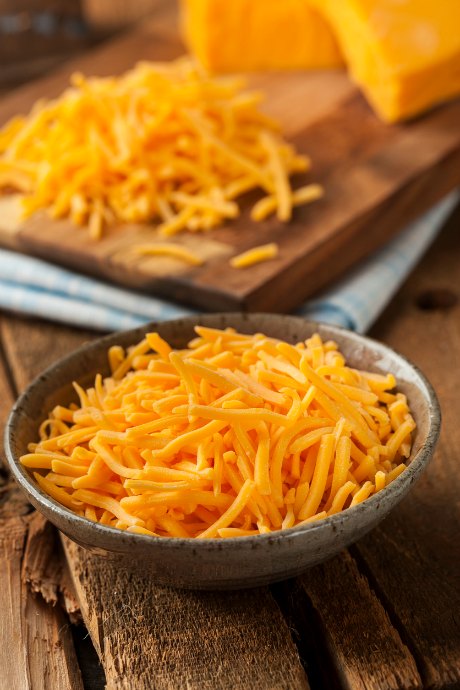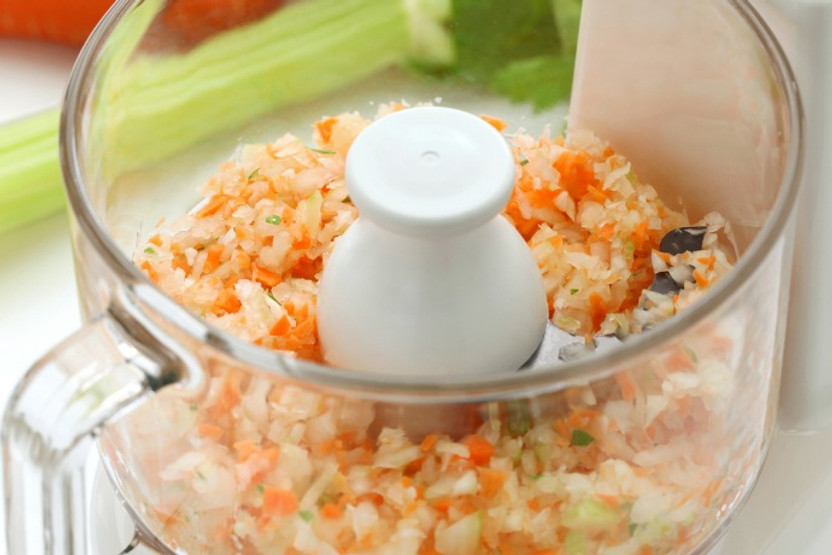Should You Buy a Food Processor?
Posted by Julie on Jul 25th 2016
If you already own a food processor, chances are good you love it. If you're wondering if you should buy a food processor, you probably want to know what the fuss is all about. In short, a food processor can make quick work of large quantities of food. From chopping vegetables and grating cheese to mixing pesto and making pie dough, it's a versatile tool.
But what can a food processor do that a blender, a knife, or another kitchen tool can't? In a family kitchen, how useful can a food processor really be? And when should you buy a food processor instead of using a sharp knife and a cutting board? Read on for the answers to these questions and more.
Food Processor vs. Blender
In the simplest terms, blenders handle liquids and liquid-based ingredients better than food processors. Likewise, food processors handle larger amounts of solid ingredients better than blenders. There are a few tasks both a food processor and a blender can handle, but each tool has its place in a well-stocked kitchen.

The best illustration we found for the difference between a food processor and a blender came from this post on Jennifer's Kitchen. She put a variety of foods in her blender and her food processor and took pictures of the results. Her photos show how well each tool handles vegetables, nuts, herbs and grains.
How Useful Is a Food Processor?
Short answer: If you regularly cook from scratch for four or more people, it can really help cut down on prep time if you buy a food processor.
A food processor is great for vegetables, especially if they are going into a salad or a soup base. Chopping cabbage or spinach for slaw or salad can be tedious. Shred them in a food processor instead. Do the same with carrots, onion and celery for mirepoix, or potatoes for hash browns or latkes. Slice firm vegetables with uniform thickness before roasting or baking.
Instead of buying bagged pre-shredded cheese (which contains cellulose to keep it from sticking together), use a food processor to quickly grate any cheese: gruyere, provolone, cotija and other varieties that don't come in a bag. It's an ideal tool to have on hand when you're making lasagna, pizza, or even grilled cheese or quesadillas for a group.
A food processor works far better than a blender for making salsa, pesto, hummus and nut butters. Plus, these all taste better and cost less when made from scratch than when bought in a jar. A food processor is also preferable to chopping nuts by hand on a cutting board, which usually ends with shards of nuts all over the counter.
Finally, a food processor can grind meat, turn bread into crumbs, and cut butter into pie dough. Lindsay from Pinch of Yum rhapsodizes over all the ways she uses hers. We bet she could persuade just about anyone to give it a try.
Still Not Sure? Consider These Points Before You Buy
Bear in mind that it's important to use a food processor properly in order to get the best results. They can be magical machines, but they do require a bit of effort and common sense. Bon Appetit lists six frequently-seen food processor mistakes and explains how to avoid them.
Plus, a food processor can take up a lot of space whether on the counter or in a cabinet, which is a drawback for chefs with small kitchens. It also requires detail-oriented cleaning, often by hand.
In spite of these drawbacks, a food processor can be a huge help in any kitchen, no matter how many people you're cooking for. However, it's best suited to preparing lots of food at once, so cooking for a crowd is a great reason to buy a food processor.

